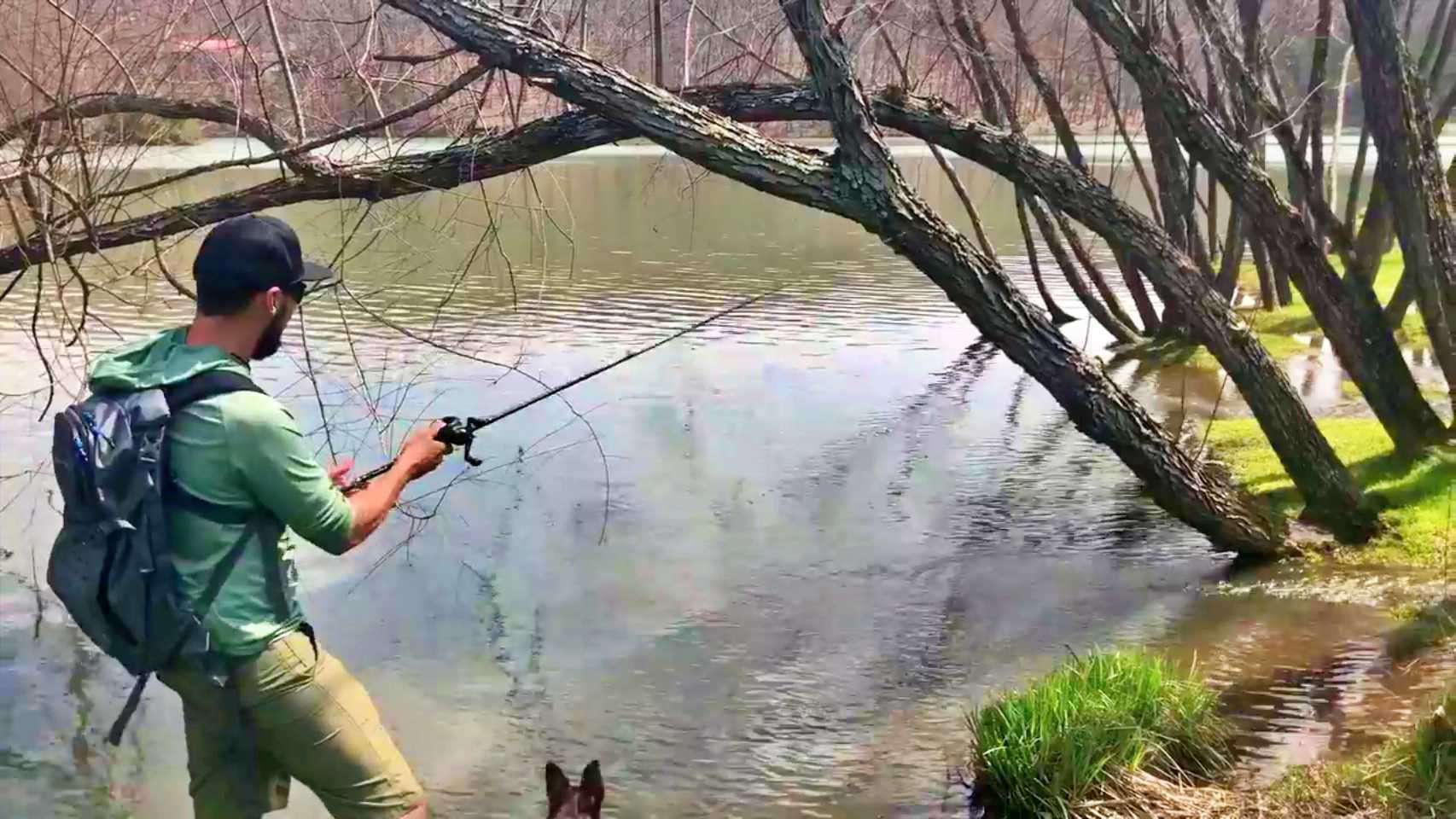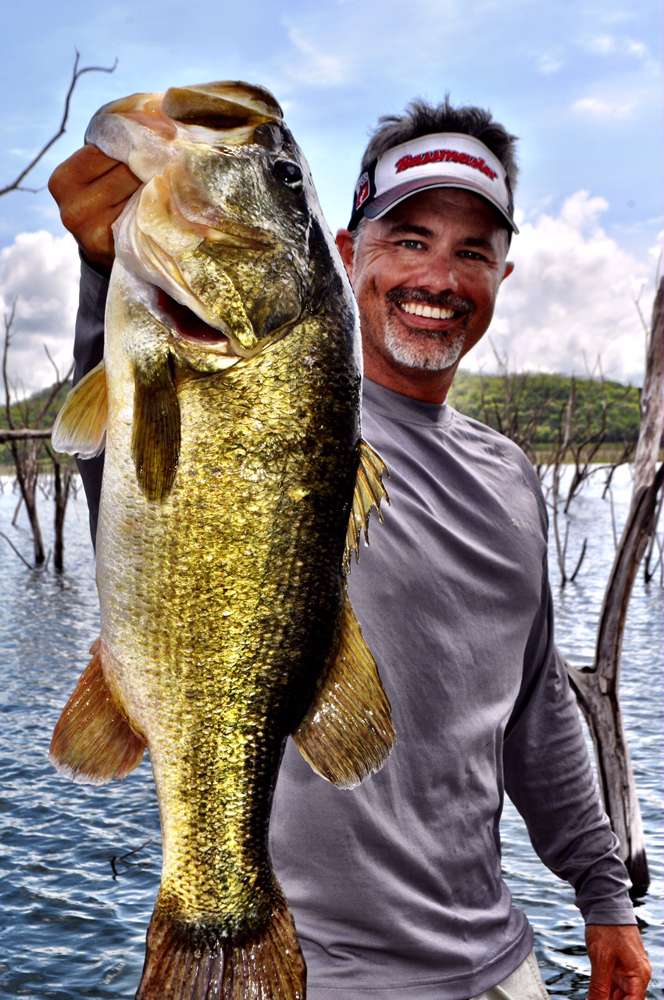
The stand of submerged trees was only about 20 feet from the bank, but I considered it a long cast with the 6-foot spincast outfit I was using. I’m pretty sure it was the summer of ’80, as I remember the Mount St. Helens eruption was a major point of discussion with my grandfather’s friends when we would go to the local tackle store to pick up nightcrawlers for bream fishing. Most likely barefoot and wearing only cutoff jeans, I was not looking for bluegill off the bank of Texas’ Lake Arrowhead this particular late spring afternoon. I wanted something bigger.
Now, my grandfather was a sustenance fisherman, and a damn good one. He had trotlines crisscrossing Arrowhead, where he lived, at various depths and travel routes of the flathead catfish, his prized adversary. He had also submerged brush around his dock to lure crappie, his favorite table fare. As for bass, he considered them trash fish. Not even kidding.
That said, he did have a small stash of bass lures in his old, three-tray metal tacklebox. There were three crankbaits, a handful of topwaters and some spinnerbaits, still stapled to their cardboard packaging. I opted for the spinner. At 9 years old, I wasn’t good at anything beyond getting into trouble. Still, I could tie a clinch knot. My grandfather made me practice for hours, it seemed. So, armed with my Zebco 33 and one-eighth of the bass tackle inventory from the metal box, I marched down the bank to the flooded trees.
I don’t know how long I was casting the bait toward the cover. I’m not sure how close to the trees the spinnerbait landed or if I had even made a turn of the reel handle. All I remember is that something in the water tried to take from my hands the rod that I was holding. I held on for dear life, reeled against the slipping drag and eventually pulled onto shore my first bass. At least, it was the first bass I remember catching. I had caught plenty of catfish, crappie and bluegill. This experience was different. It’s not an exaggeration to say that one bite affected my life. I wanted to catch another bass. I bet I cast another 37,000 times at that stand of trees. When my parents would drive by other lakes, I’d look for similar flooded trees near the bank. When I went to college, I looked for lakes with bank access. I bought my first house based on how close it was to a lake. And of course, my passion for fishing has molded my professional life.
Considering how that one bite changed my course for the better, I can’t help but hope the millions of kids picking up a fishing rod for the first time will experience similar results. In 2020, it is estimated that 10 million people tried fishing for the first time. Lockdowns, shutdowns and quarantines will inspire adventure to the outdoors, it seems.
If you or someone you know is new to bass fishing and needs help finding access, visit takemefishing.org. This website is a great resource for beginners. Another option for bank-bound anglers is to look at Google Earth maps and identify public boat ramps. Almost all public ramps will have docks and adjacent bank access from which to fish. Lake dams are another great spot to cast from the bank. Many dams offer exceptional access to anglers, and bass love to feed on bait dazed by the flow of energy generation.
Although I have a boat, bank fishing still occupies a healthy percentage of my annual fishing time. I still look for a stand of flooded trees a long cast away. I still fling a spinnerbait. And I’m still hoping that next bite is something bigger.





